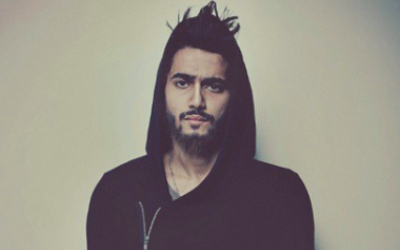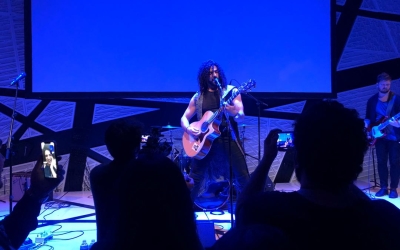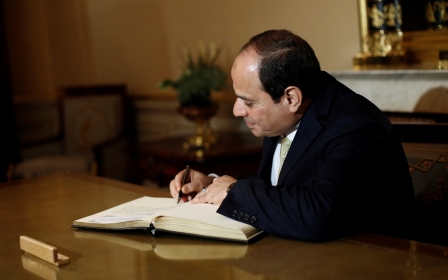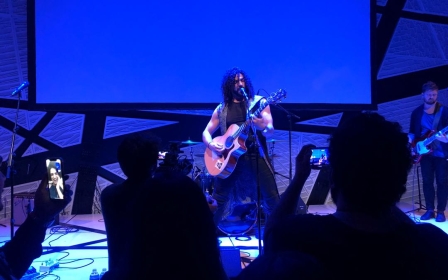Egyptian artist Ramy Essam's new song inspired by poet jailed for 1,000 days
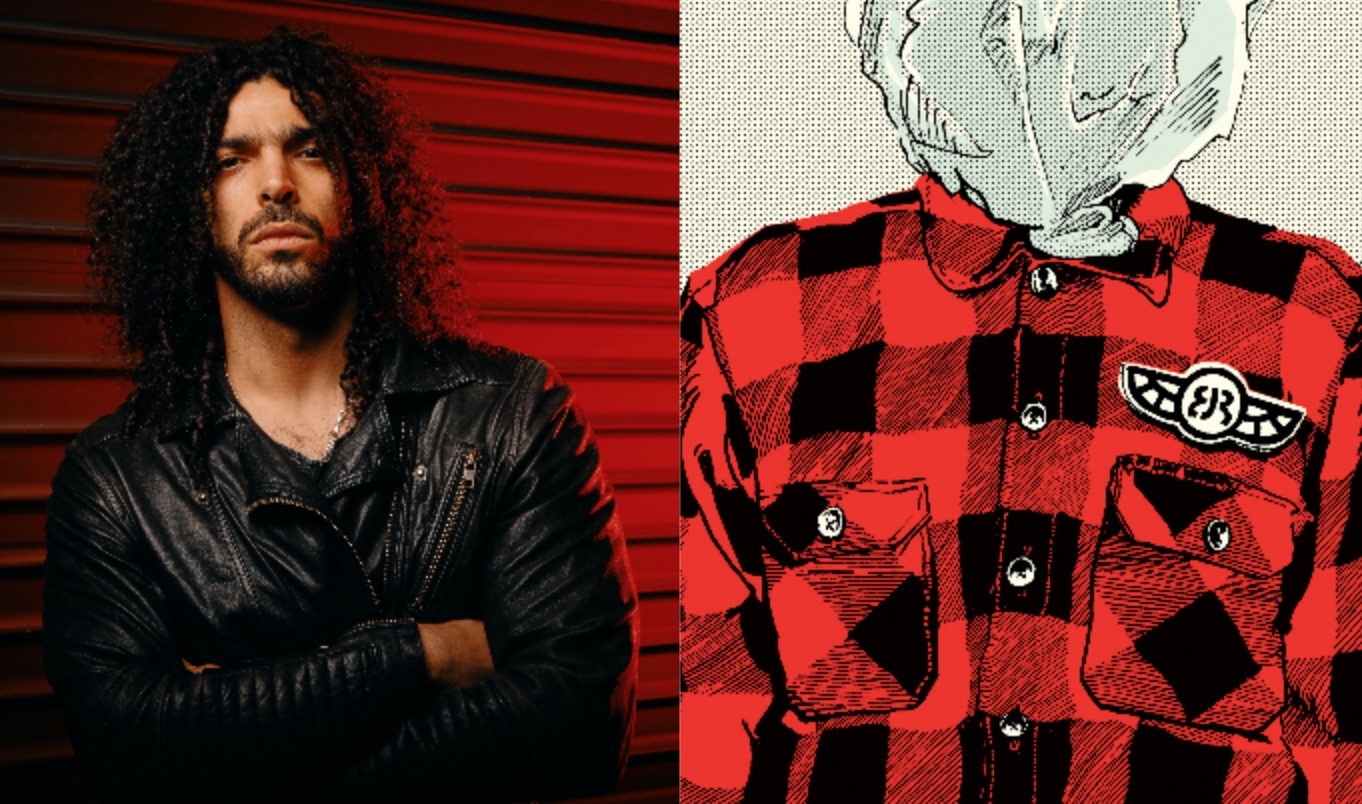
Egyptian artist and musician Ramy Essam released a new song on Friday to mark 1,000 days since the imprisonment of poet and lyricist Galal El-Behairy, who remains behind bars despite continued calls for his release.
El-Behairy was in 2018 sentenced to three years in prison - and fined what was then the equivalent of $560 - for allegedly writing a poetry book which the Egyptian army found provocative.
'The government wants to silence people and spread fear... but music can't be stopped. Music is the most powerful peaceful weapon in the world'
- Ramy Essam
He was found guilty of blasphemy, publishing "false news" and "insulting the military establishment".
With Friday marking 1,000 days of El-Behairy behind bars, Essam released a song to highlight his case, based on a poem El-Behairy wrote while in prison.
Essam is a rock musician and a human rights defender who lives in exile in Sweden. The artist rose to prominence when he was at the forefront of the 2011 Egypt protests which toppled long-time autocrat Hosni Mubarak.
New MEE newsletter: Jerusalem Dispatch
Sign up to get the latest insights and analysis on Israel-Palestine, alongside Turkey Unpacked and other MEE newsletters
The song is named El Amiis El Karoo (The Flannel Shirt), the lyrics being the verses of El-Behairy's poem, which he wrote in the Tora prison in 2018.
Essam and El-Behairy met in 2011 during the revolution against Mubarak. The song details hardships experienced while in prison, such as the difficulty in communicating with people outside and the feelings of isolation.
"Before I left Egypt, I was not allowed to perform, I was arrested and tortured," Essam told Middle East Eye.
The musician believes that artists and creatives have been targeted by the government in order to silence people.
"Music is targeted because it's so strong and powerful that it scares them. It gives voice to the people and unites them... There are over 100,000 political prisoners in Egypt, the government wants to silence people and spread fear... but music can't be stopped. Music is the most powerful peaceful weapon in the world."
In February 2018, Essam released a satirical song named 'Balaha', and an accompanying music video. The song was critical of the Egyptian government.
With lyrics written by El-Behairy, the video was directed by Shady Habash who reportedly died of medical negligence in custody earlier this year.
The cover art of the album, created by Egyptian artist Ganzeer, was inspired by a campaign which followed El-Behairy’s arrest. Essam says it was symbolic of the conditions in Egyptian prisons.
That campaign, which spread across social media in 2016, used a number of hashtags #عايز_اتنفس (I want to breathe), #مسجون_مخنوق (Suffocating prisoner) and #خنقتونا (We are suffocating).
"We wanted to highlight the bad conditions and air circulation and the cells with no windows," said Essam. "The music video raises awareness about the bad conditions in Egyptian jails."
'Imprisoned because of poetry'
Shortly after the release of the song, in March 2018, El-Behairy was imprisoned before appearing in front of the State Security Prosecution showing signs of severe torture.
'Galal is imprisoned because of his poetry - we have to read and share his poetry to keep his voice alive. Galal's poetry is very powerful, real, beautiful and touching'
- Ramy Essam
That July, he was sentenced to three years in prison and fined EGP 10,000 (which in 2018 was equivalent to $560 but which is now worth $640) by the Military Court in Cairo over his unpublished book, The Finest Women on Earth.
English PEN, a human rights organisation that champions writers facing persecution, has also called for people to take action and spread the word about El-Behairy's imprisonment.
"We hope that El-Behairy knows that he has not been forgotten, that his words are continuing to reach audiences around the world," said PEN's Cat Lucas.
"And we hope that he knows that we will continue to stand with him and to call for his immediate and unconditional release for as long as it takes."
Essam, meanwhile, has used his music and platform to call for better conditions in prisons in Egypt, and for the release of political prisoners.
"Galal is imprisoned because of his poetry - we have to read and share his poetry to keep his voice alive. Galal's poetry is very powerful, real, beautiful and touching," Essam told Middle East Eye.
He added: "Egyptian jails are not suitable for any human. We have to be worried about everyone being imprisoned there, their health, their wellbeing. Shady Habash died because of medical negligence, and we have to stop this from happening to others."
Essam says that his music is often inspired by social and political issues, as well as protests and revolutions that have taken place in Egypt.
"The themes of my songs come from the streets, people, Egyptian poets, revolution and current movements around the world," he says.
Speaking to MEE from his place of exile in Sweden, Essam shared some of the changes he wished to see in Egypt, from improved education, to healthcare, democracy, self-sufficiency and religious freedom - and his hope to see more rights for minorities in Egypt, as well as the tackling of issues such as sexual harassment and gender inequality.
"There is no press freedom," he concluded. "The dissidents are persecuted, artists don't have their rights. People are afraid to express themselves."
Middle East Eye delivers independent and unrivalled coverage and analysis of the Middle East, North Africa and beyond. To learn more about republishing this content and the associated fees, please fill out this form. More about MEE can be found here.


